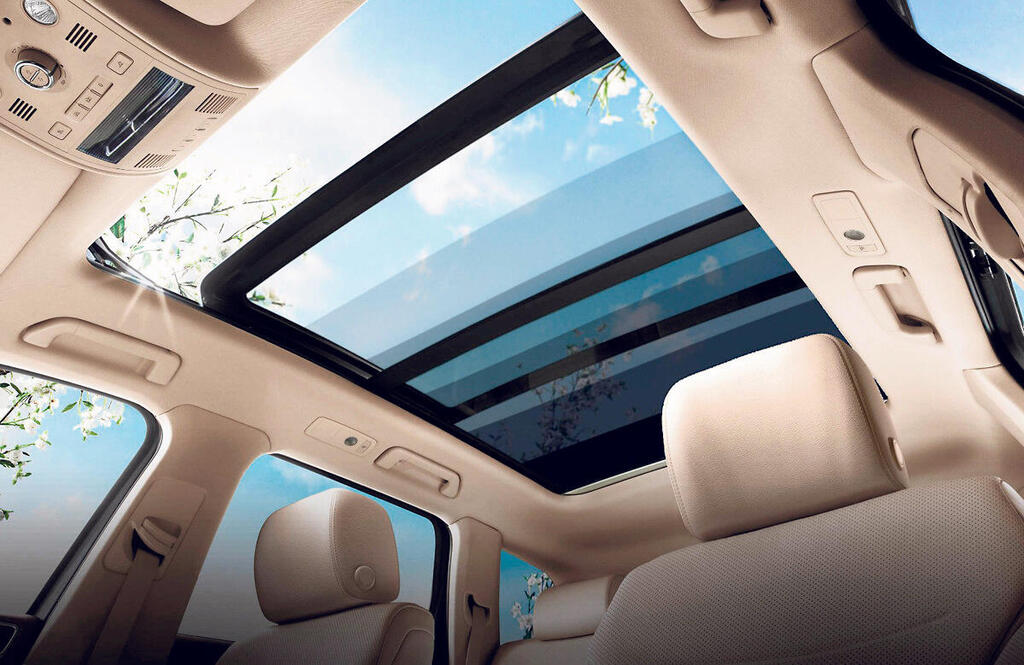
Nanotech startup Gauzy eyeing $500 million Nasdaq IPO this year
Gauzy is expected to file a prospectus with the SEC in the coming days with the hope of raising $100 million. The Israeli company had initially planned to go public last year at a higher valuation but postponed its offering due to the downturn in the technology sector
A year after the originally planned date, Israeli nanotech startup Gauzy, which develops smart glass technologies, is preparing to go public on Nasdaq at a valuation of $500 million, Calcalist has learned. The IPO is planned for this quarter, should market conditions allow it. The Israeli company is expected to submit a prospectus to the U.S. Securities and Exchange Commission (SEC) in the coming days, after which a roadshow for investors will begin.
Gauzy is believed to have already submitted an up-to-date confidential prospectus to the SEC, having initially done so in the second half of 2022, before deciding to suspend the IPO process, which was supposed to take place in the first quarter of 2023. Originally, Gauzy aimed to carry out the offering at a value of $600 million. However, now the planned value is expected to be $400-500 million. The scope of the planned fundraising was also reduced from $150 million in the original plan to $100 million.
The reduction in the amount of funding and value is largely a consequence of the high interest rate, which cooled the demand for risk assets and resulted in the closing of the IPO window on Wall Street, especially for technology companies. However, there has been a certain recovery since the beginning of 2024, although mainly regarding large technology companies. Gauzy believes that an IPO at this time could contribute to increasing sales, and therefore they want to go ahead with the IPO despite the great uncertainty in the markets.
Gauzy was founded in 2010 by Eyal Peso, who serves as CEO, Adrian Lofer, who serves as CTO, and Dmitry Dobrenko. The company has developed smart glass, which allows for the control of the shading level of the glass in vehicles or buildings. Among its customers are manufacturers of windshields for vehicles, television manufacturers, and more, including the South Korean corporation LG, which was helped by Gauzy to develop a transparent TV screen. Other clients include car manufacturers BMW, Hyundai - which also invested in the company; Mercedes - which was the first to purchase Gauzy's product; Texas Instruments; and the aircraft manufacturer Airbus.
The materials on which Gauzy's Light Controlled Glass technology is based are PDLC (polymer dispersed liquid crystal) and SPD (suspended particle device) that allow internal and external vehicle glass to be an active material that supports full shading and glare mitigation, temperature control, infotainment, advertising, and vehicle-to-vehicle and vehicle-to-pedestrian messaging. The technology prevents glare, allows privacy in the car and in bathrooms, and can even make a refrigerator door transparent.
In 2022, Gauzy purchased the company Vision Systems for about $60 million. The French company specializes in ADAS (advanced driver assistance systems), APAS (advanced passenger assistance systems), and shading products for the aviation and automotive industries. For the purpose of the purchase, Gauzy raised a similar amount from a number of investors, mainly venture capital funds and private investment funds such as IBEX, Olive Tree VC, Blue Red Partners, Waarde Capital, and Avery Dennison. New investors included Walleye Capital and 3A Capital. Gauzy has raised a total of $125 million to date.
Gauzy runs production facilities in Lyon, France, in Florida, Israel, and Germany, and has 14 offices around the world. The company employs 480 people, of which 180 are production workers. The company has customers in Europe, America, and Asia, and its annual revenue is estimated at $100 million.
Gauzy has several competitors, including the American company View Inc, whose product also allows control of heat entry into living spaces, resulting in increased energy efficiency of buildings. Another competitor is the French Saint-Gobain, which develops glass that changes the transmission of light in response to an electric charge and is considered one of the dominant players in the field. Another competitor is the Japanese AGC, which is also active in the automotive sector.














